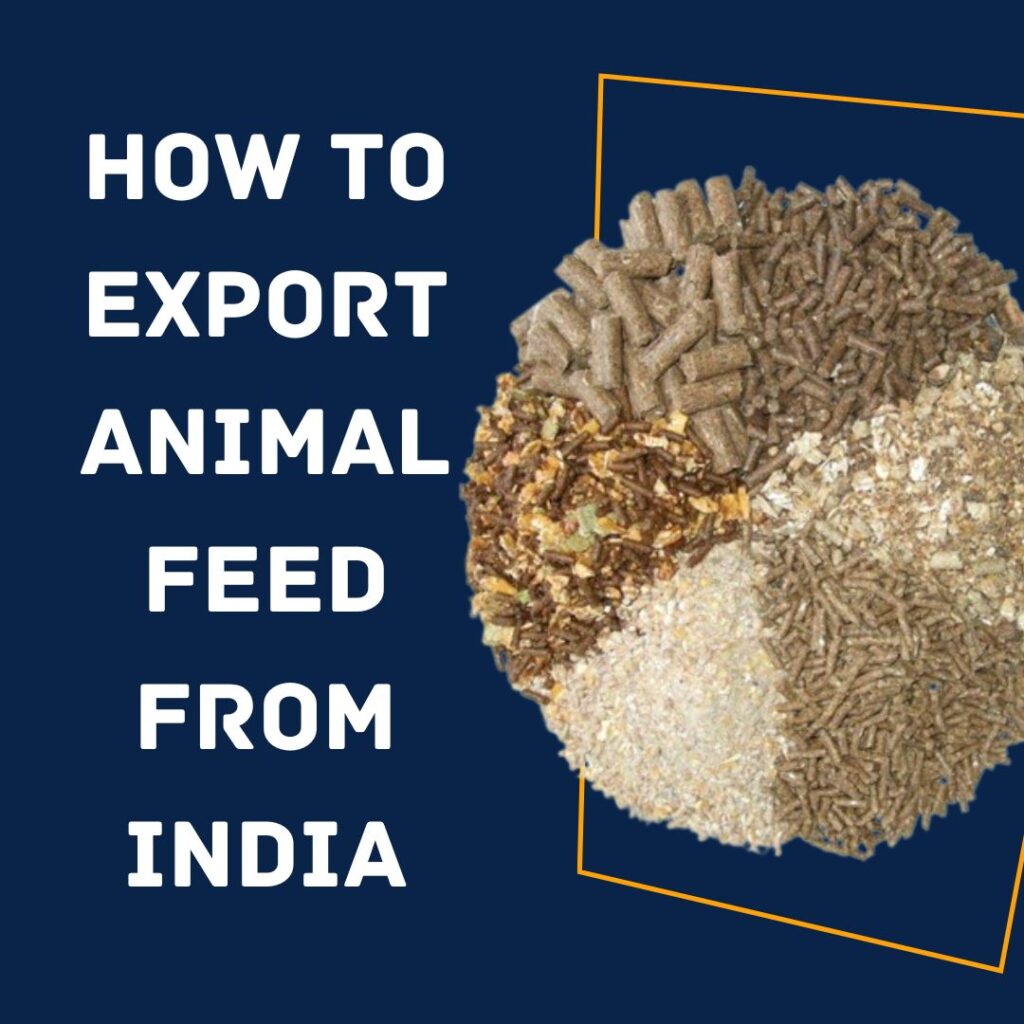Market Research:
Identify the target market for your animal feed products. Understand the demand, regulations, and requirements of the destination country.
Product Compliance:
Ensure that your animal feed products comply with the quality standards and regulations of both India and the importing country. This may include testing for contaminants, meeting labeling requirements, and adhering to specific formulation standards.
Registration and Licensing:
Register your business with the relevant authorities in India, such as the Directorate General of Foreign Trade (DGFT) and the Agricultural and Processed Food Products Export Development Authority (APEDA).
Obtain necessary licenses and certifications, including the Exporter Importer Code (IEC) from DGFT.
Quality Certification:
Get your products tested and certified by authorized laboratories to ensure they meet the quality standards of the importing country.
Documentation:
Prepare all required documentation, including commercial invoices, packing lists, certificates of origin, phytosanitary certificates, and any other specific documents required by the importing country.
Phytosanitary Certificate:
Obtain a phytosanitary certificate from the Plant Quarantine Authority or the relevant authority in India. This document certifies that the animal feed products are free from pests and diseases.
Shipping and Packaging:
Choose a reliable shipping method and packaging that complies with international standards. Labeling should be clear and in accordance with the regulations of the importing country.
Customs Clearance:
Work with a licensed customs broker to facilitate smooth customs clearance in both India and the destination country.
Incoterms and Contracts:
Clearly define the terms of trade using Incoterms in your sales contract. This includes specifying responsibilities for transportation, insurance, and customs duties.
Shipping and Logistics:
Arrange transportation and logistics for the shipment. Ensure that all documents are provided to the shipping company.
Payment:
Agree on payment terms with the buyer. It’s common to use methods such as Letter of Credit (L/C) for international transactions to ensure secure payment.
Follow Regulations of the Importing Country:
Stay updated on the regulations of the importing country. Some countries may have specific requirements for labeling, packaging, and other aspects of animal feed products.
It’s crucial to work closely with relevant government authorities, trade associations, and legal advisors to ensure compliance with all regulations. Keep in mind that the process may vary based on the specific type of animal feed and the importing country’s regulations.

